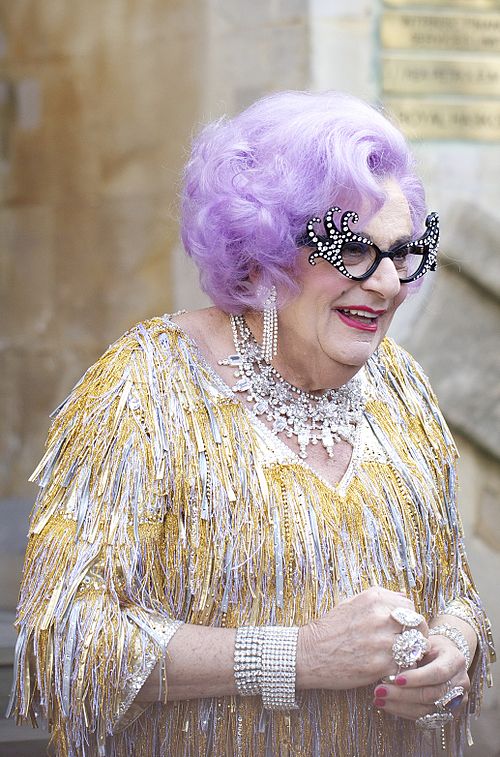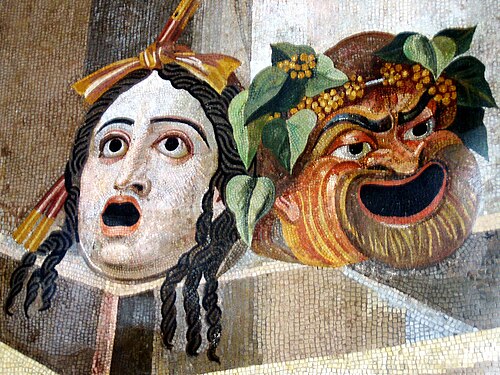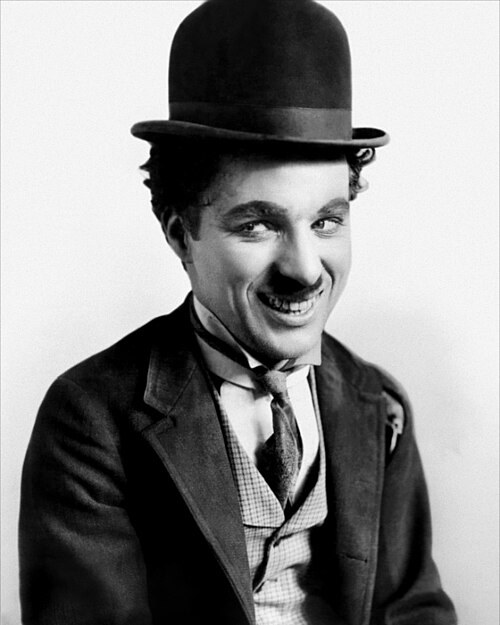Comedynoun
A choric song of celebration or revel, especially in Ancient Greece.
Comedynoun
(countable) A light, amusing play with a happy ending.
Comedynoun
A narrative poem with an agreeable ending (e.g., The Divine Comedy).
Comedynoun
A dramatic work that is light and humorous or satirical in tone.
Comedynoun
(drama) The genre of such works.
Comedynoun
(uncountable) Entertainment composed of jokes, satire, or humorous performance.
Comedynoun
The art of composing comedy.
Comedynoun
(countable) A humorous event.
Comedynoun
A dramatic composition, or representation of a bright and amusing character, based upon the foibles of individuals, the manners of society, or the ludicrous events or accidents of life; a play in which mirth predominates and the termination of the plot is happy; - opposed to tragedy.
Comedynoun
light and humorous drama with a happy ending
Comedynoun
a comic incident or series of incidents
Comedynoun
professional entertainment consisting of jokes and sketches, intended to make an audience laugh
Comedynoun
a film, play, or broadcast programme intended to make an audience laugh
Comedynoun
the style or genre represented by comedy films, plays, and broadcast programmes
Comedynoun
the humorous or amusing aspects of something
Comedynoun
a play characterized by its humorous or satirical tone and its depiction of amusing people or incidents, in which the characters ultimately triumph over adversity
Comedynoun
the dramatic genre represented by comedies
Comedy
Comedy (from the Greek: κωμῳδία, kōmōdía) is a genre of fiction comprised of discourses or works intended to be humorous or amusing by inducing laughter, especially in theatre, film, stand-up comedy, television, radio, books, or any other entertainment medium. The term originated in Ancient Greece: in Athenian democracy, the public opinion of voters was influenced by political satire performed by comic poets in theaters.
Dramanoun
A composition, normally in prose, telling a story and intended to be represented by actors impersonating the characters and speaking the dialogue
Dramanoun
Such a work for television, radio or the cinema (usually one that is not a comedy)
Dramanoun
Theatrical plays in general
Dramanoun
A situation in real life that has the characteristics of such a theatrical play
Dramanoun
(slang) Rumor, lying or exaggerated reaction to life events; melodrama; an angry dispute or scene; intrigue or spiteful interpersonal maneuvering.
Dramanoun
A composition, in prose or poetry, accommodated to action, and intended to exhibit a picture of human life, or to depict a series of grave or humorous actions of more than ordinary interest, tending toward some striking result. It is commonly designed to be spoken and represented by actors on the stage.
Dramanoun
A series of real events invested with a dramatic unity and interest.
Dramanoun
Dramatic composition and the literature pertaining to or illustrating it; dramatic literature.
Dramanoun
a dramatic work intended for performance by actors on a stage;
Dramanoun
an episode that is turbulent or highly emotional
Dramanoun
the literary genre of works intended for the theater
Dramanoun
the quality of being arresting or highly emotional
Dramanoun
a play for theatre, radio, or television
Dramanoun
plays as a genre or style of literature
Dramanoun
the activity of acting
Dramanoun
an exciting, emotional, or unexpected event or circumstance
Drama
Drama is the specific mode of fiction represented in performance: a play, opera, mime, ballet, etc., performed in a theatre, or on radio or television. Considered as a genre of poetry in general, the dramatic mode has been contrasted with the epic and the lyrical modes ever since Aristotle's Poetics (c.
























